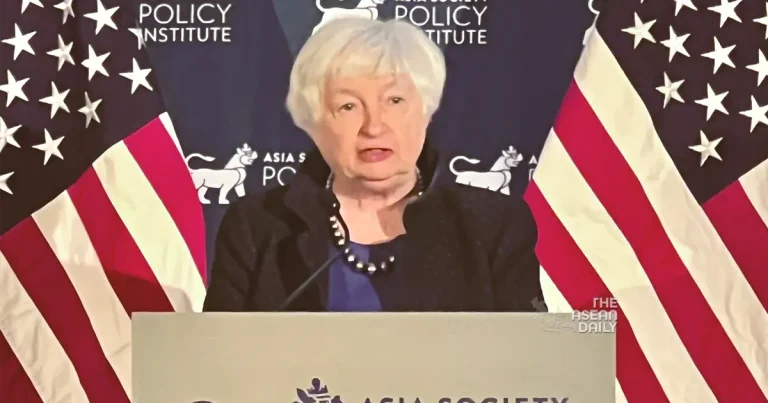7-11-2023 (SAN FRANCISCO) U.S. Treasury Secretary Janet Yellen is gearing up to host Chinese Vice Premier He Lifeng for a two-day summit this week, marking the latest installment in a series of high-level talks between American and Chinese officials. These dialogues are seen as a crucial effort by the world’s two largest economies to mitigate tensions, as disclosed by the Treasury Department on Monday.
Scheduled for Thursday and Friday, the Yellen-He discussions will precede the commencement of the Asia-Pacific Economic Cooperation summit in San Francisco, slated for November 11. Notably, this summit is anticipated to witness a rendezvous between President Joe Biden and Chinese President Xi Jinping, marking their first engagement in nearly a year.
“As a foundation, our two nations have an obligation to establish resilient lines of open communication and to prevent our disagreements from spiraling into conflict,” Yellen emphasized in a Washington Post op-ed, spotlighting the forthcoming meeting. “But we also know that our relationship cannot be circumscribed to crisis management.”
This gathering of high-ranking government officials comes in the wake of President Biden’s hour-long discussion with Chinese Foreign Minister Wang Yi at the White House late last month. Wang’s visit to Washington included talks with U.S. Secretary of State Antony Blinken and White House national security adviser Jake Sullivan. In a similar vein, Chinese President Xi met with Blinken back in June during the secretary of State’s visit to Beijing for discussions with Wang.
Yellen’s last encounter with her counterpart, He, occurred during her visit to Beijing in July. At that time, she urged Chinese government officials to collaborate on climate change and address other global challenges while striving to prevent sharp disagreements on trade and other contentious matters from derailing diplomatic relations.
China’s Foreign Ministry has announced that He, who leads the government’s efforts on U.S.-China economic and trade issues, will be visiting the United States from November 8 to 12.
During her discussions with He in San Francisco, Yellen is expected to emphasize climate issues. The Treasury Department has stated that Yellen will also underscore the Biden administration’s commitment to taking targeted actions in the interest of national security and that of its allies, as well as to protect human rights. It is worth noting that these actions are not pursued with the intent of seeking economic advantages.
Despite these diplomatic efforts, tensions between the United States and China remain elevated, particularly concerning U.S. export controls on advanced technology. The Biden administration has also been critical of Beijing’s economic practices, which it contends have disadvantaged U.S. companies and workers.
The U.S. has not hesitated to voice concerns about China’s lending practices under the $1 trillion Belt and Road Initiative, a sprawling network of projects and maritime routes spanning large portions of the world, primarily across Asia and Africa. Critics, including the Biden administration, argue that these projects often result in substantial debt burdens for nations involved and expose them to undue influence from Beijing.
In her op-ed, Yellen stated that she would use the upcoming meetings to express the administration’s “serious concerns with Beijing’s unfair economic practices, including its large-scale use of non-market tools, its barriers to market access, and its coercive actions against U.S. firms in China.”
Moreover, the U.S. has frequently raised concerns about China’s assertive actions in the East and South China Seas.
Just last month, the U.S. military released a video revealing a Chinese fighter jet flying within ten feet (three meters) of an American B-52 bomber over the South China Sea, nearly causing a collision. Earlier in October, the Pentagon published footage of over 180 intercepts of U.S. warplanes by Chinese aircraft over the past two years, a trend that U.S. military officials find disconcerting.
The U.S. has also reaffirmed its commitment to defend the Philippines in the event of an armed attack, following an incident where Chinese ships blocked and collided with two Philippine vessels near a disputed shoal in the South China Sea.
Beijing has countered these claims with its own video evidence of close encounters in the region, including footage that depicts the USS Ralph Johnson executing a sharp turn and crossing in front of a Chinese navy ship. The U.S. destroyer was also captured sailing between two Chinese ships




